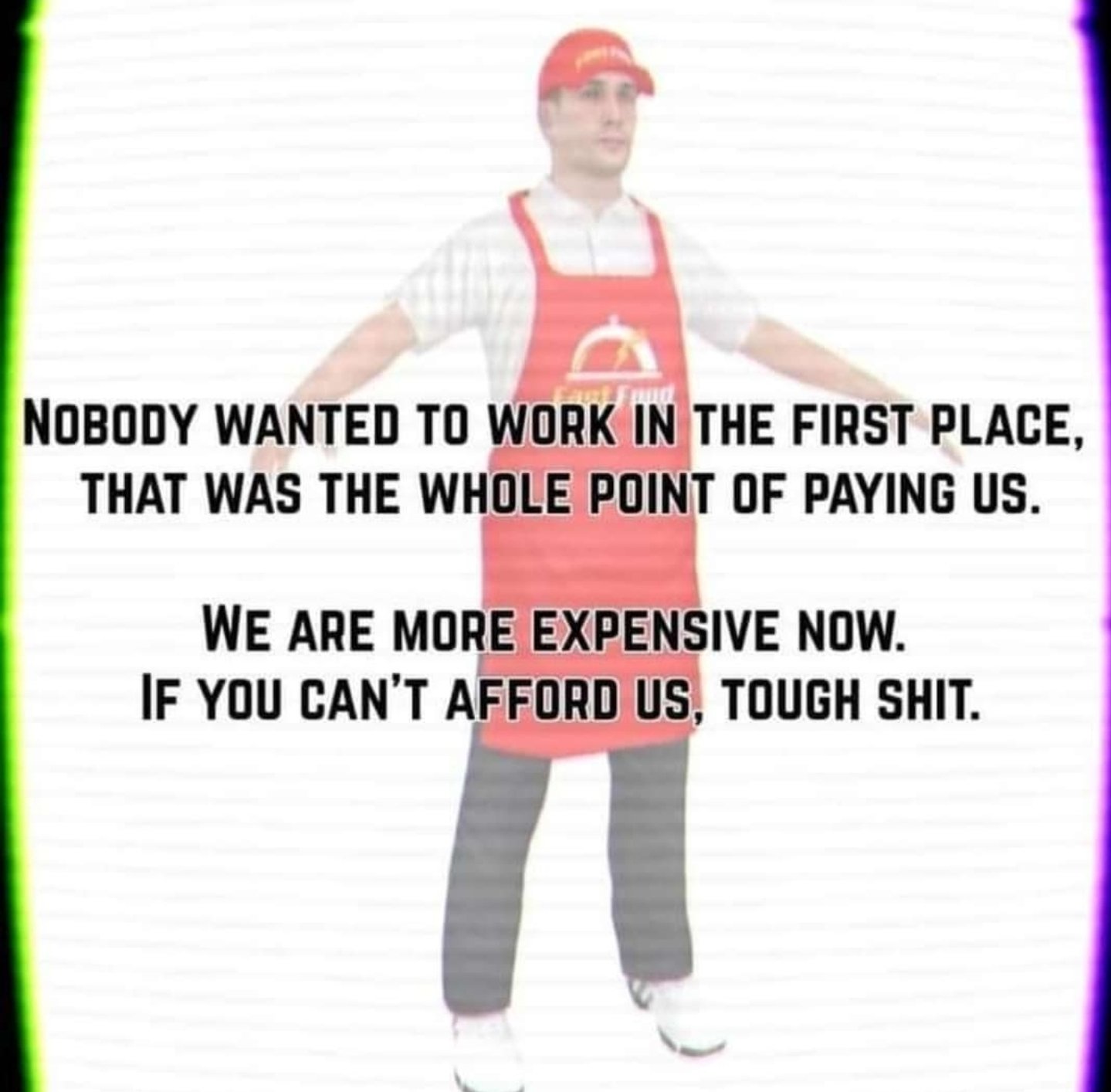this post was submitted on 01 May 2024
1020 points (98.7% liked)
Political Memes
5444 readers
3253 users here now
Welcome to politcal memes!
These are our rules:
Be civil
Jokes are okay, but don’t intentionally harass or disturb any member of our community. Sexism, racism and bigotry are not allowed. Good faith argumentation only. No posts discouraging people to vote or shaming people for voting.
No misinformation
Don’t post any intentional misinformation. When asked by mods, provide sources for any claims you make.
Posts should be memes
Random pictures do not qualify as memes. Relevance to politics is required.
No bots, spam or self-promotion
Follow instance rules, ask for your bot to be allowed on this community.
founded 1 year ago
MODERATORS
you are viewing a single comment's thread
view the rest of the comments
view the rest of the comments

How does this explain early societies and people that opted to work to improve their environment before money was invented?
I disagree. We do just want to work. That's what makes us human. We labor.
People worked to have a calorie surplus so they could not work the next day, or they could make sure their shelter wasn't leaking, or they could do something they found entertaining.
People don't work for the sake of work.
So you're saying people labor in order to entertain, love, create, do art, and do philosophy?
Sounds very human to me.
Never did i claim that people "work for the sake of work". My argument is that humans can be characterized as working creatures who use labor to change their environment - be it geographically, politically, socially, etc...
And that is very true.
It's that at some point someone realized they could use their momentary surplus to exploit someone else's dire need and thus use other people's labor to generate an even larger surplus for themselves.
The rationale to justify this exploitation has changed through the ages, as well as how much has to be spent to coax others - going from slavery all the way to whatever is on the other end, which I guess would be the shared ownership of the means of production.